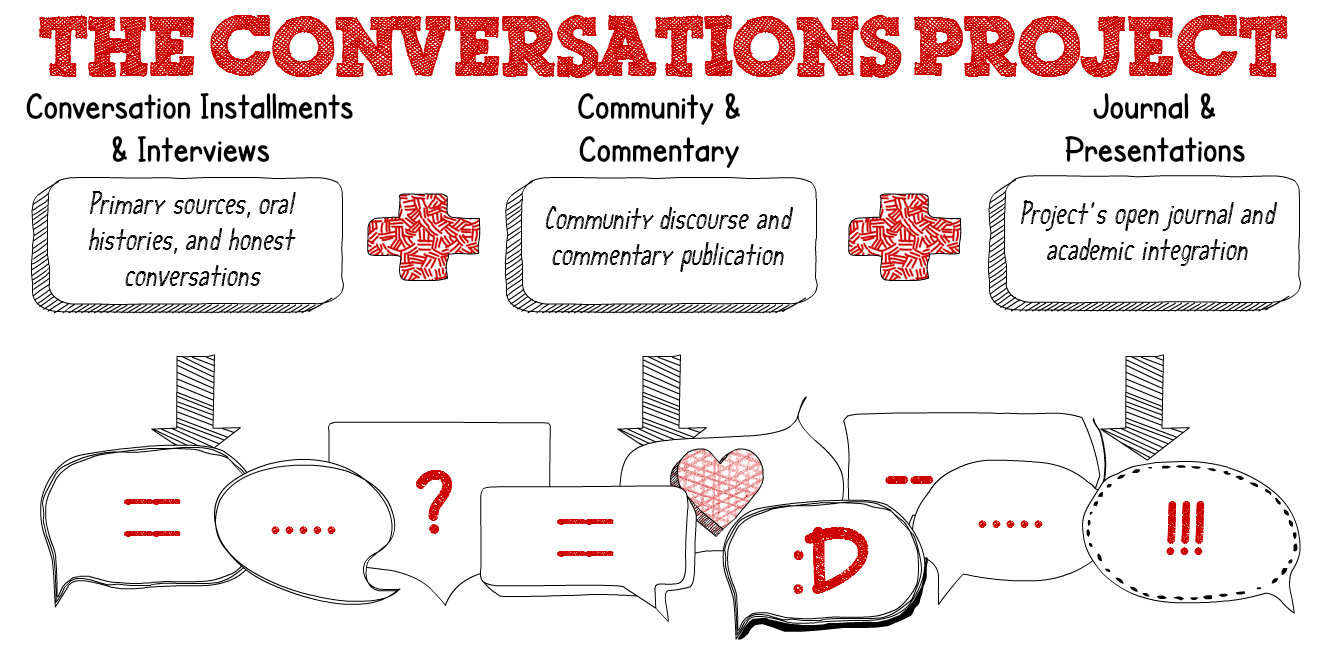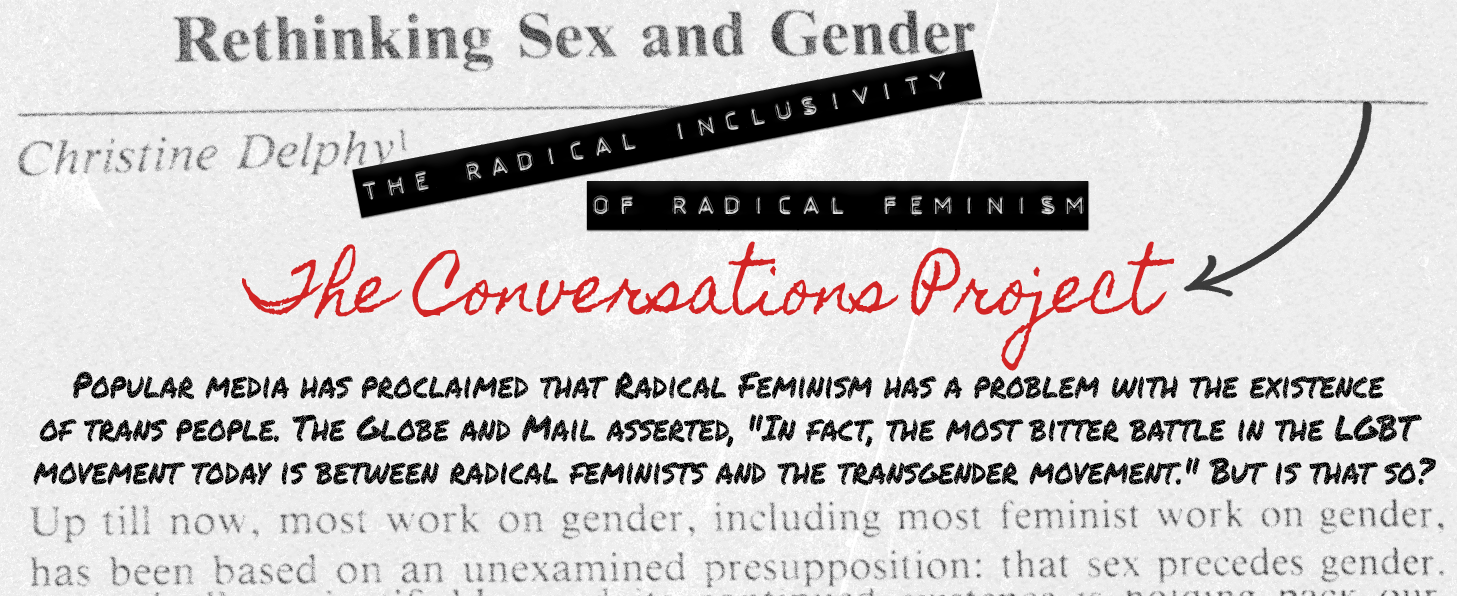The Conversations Project
We are committed to bringing attention to a decades old inclusive radical feminist tradition through inspiring informed critical discourse rooted in an intersectional trans and radical feminist perspective.
This is accomplished through the Project’s community group, quarterly journal, interviews as well as the publication of a book-length collection of collaborative essays from radical feminist John Stoltenberg and trans feminist Cristan Williams.

I n the groundbreaking 1973 book Radical Feminism, the book's co-editor Anne Koedt defined radical feminism as, "the advocacy of the total elimination of sex roles." She went on to define a radical feminist as, "one who believes in this and works politically toward that end." Koedt added the following caveat: "She does not by this definition live a life untouched by sex roles; there are no 'liberated' women in that sense." We hope to center our conversations on the what it means to be a trans, intersex, or allied individual who works toward the total elimination of sex roles, stereotypes, and hierarchies. Ultimately, these conversations are an investment in our shared commitment to liberation: an end to sexism. We therefore hope our Project will inspire conversations within feminist communities about our intersecting language, histories, and experience. Subscribe to The Conversations Project here
![CM-2[1]](http://radfem.transadvocate.com/wp-content/uploads/2015/11/CM-21.gif)



LET US KNOW WHAT YOU THINK ABOUT THE PROJECT!
CALL THE TRANSADVOCATE AT 708-274-7825

![Feed-2[1]](http://radfem.transadvocate.com/wp-content/uploads/2015/11/Feed-11.gif)
![Feed-2[1]](http://radfem.transadvocate.com/wp-content/uploads/2015/11/Feed-21.gif)
![Feed-3[1]](http://radfem.transadvocate.com/wp-content/uploads/2015/11/Feed-31.gif)














